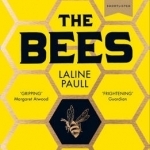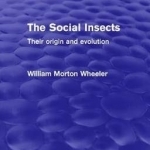
The Social Insects: Their Origin and Evolution
Book
Originally published in 1928, this volume, by a world authority on the subject, sums up our...
A Love for Life: A Way of Life
Book
Take a journey around our farms, into our cottages, bakery and kitchen. Learn how to tie the perfect...
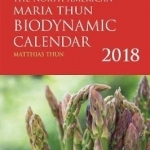
The North American Maria Thun Biodynamic Calendar: 2018
Book
The 2018 Maria Thun biodynamic calendar, now in its 56th year, adapted for North American (Eastern...
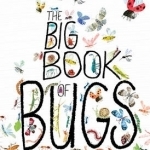
The Big Book of Bugs
Yuval Zommer and Barbara Taylor
Book
Introductory spreads explain that bugs live nearly everywhere on Earth and give tips on how to...
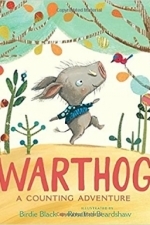
Warthog: A Counting Adventure
Birdie Black and Rosalind Beardshaw
Book
A "10 Best Children's Books 2017" by Parents magazine "A lively interactive counting book from the...
Children
Established British playwright Laline Paull’s debut novel, The Bees, represents just that. I may just be reading too much into the buzz, but the Oxford alumni who has had two plays performed at the Royal National Theatre must have some of the country in her subconscious as she writes.
The novel follows the life of worker honeybee Flora 717, born of the lowest class of bee society. In a world where mutation and difference is destroyed on sight, the larger-than-average Flora is saved from destruction by opportunities born from austerity in the hive, where ‘the season is deformed by rain, and the flowers shun’ the bees, so they need every available worker.
The life of the honeybee turns out to be symmetrical of Plato’s Republic and his utopia, where children are told what role they will have in life based on their ‘blood’. Plato divided the bronze craftsman, silver guardians and golden philosophers, and Paull divides bees in their ‘kin’ groups, named after flowers, and are priestesses to police, foragers who can fly outside the hive to the sanitation Flora, the lowest, and are given ‘no flower’. ‘A Flora may not make Wax for she is unclean, nor Propolis for she is clumsy, nor ever may she forage for she has no taste, but only may she serve her hive by cleaning,’ but the talented Flora 717 wants more.
Throughout the novel, Paull shows the same attachment to characters as George R R Martin, author of the Game of Thrones novels; the frequent loss deepens the heartbreak Flora must overcome as she fights to defy her set fate and claim the most illegal of desires. No reader will escape the anguish that concludes each new adventure.
The hive is akin to a cult, with leaders keeping their inferiors in check, with fear, intoxication and just a little hypnosis. The cult is complete with its own religion, mantra and even a parody of the Lord’s Prayer, ‘Hallowed be thy womb’, arguably my favourite part. This made the story really exciting, being on the ‘outside looking in’ as the reader, I wanted to encourage Flora to defy, but felt the fear of going against her sisters (this isn’t a cult bond word, they are all blood sisters, for only ‘the queen may breed’).
Paull’s scriptwriting has nurtured the ability to make the reader visualise her words exactly how she writes them, and that is clear within The Bees. I can see the wax panels that Flora 717 scuttles across as she travels around her hive, I can imagine the wax cribs in the nursery and know the deadly yellow and fine lines of the enemy wasp. In the ‘glass cage’ when Flora discovers the Venus Fly Trap, Paull never mentions the plant by name, but speaks only of their ‘red mouths’ with ‘white filaments’ on each ‘inner lip’, they ‘bore no pollen, the only nectar a viscous slick at the join of the petals’. But for all her beautiful imagery seeping off the pages, The Bees was not a book I have felt submerged in.
Full review on <a href="http://www.natari-himi.com">natari-himi.com</a>;

